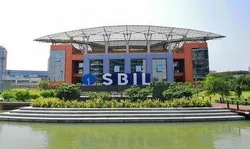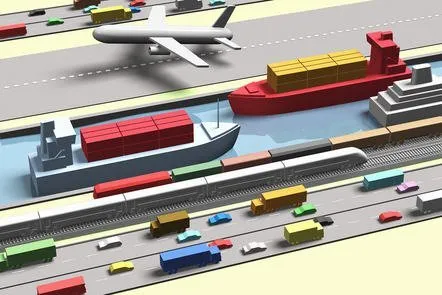
System Design for Supply Chain Management and Logistics 
This course provides an overview of system design for supply chain management and logistics. It covers the fundamentals of leading systems, as well as how to design or redesign a system to make it more competitive. Students will gain an understanding of the principles of supply chain management and logistics, and how to apply them to their own systems. ▼
ADVERTISEMENT
Course Feature
![]() Cost:
Cost:
Free
![]() Provider:
Provider:
Edx
![]() Certificate:
Certificate:
Paid Certification
![]() Language:
Language:
English
![]() Start Date:
Start Date:
15th Jan, 2019
Course Overview
❗The content presented here is sourced directly from Edx platform. For comprehensive course details, including enrollment information, simply click on the 'Go to class' link on our website.
Updated in [March 06th, 2023]
This course provides an overview of system design for supply chain management and logistics. It is based on a widely popular university course that will give learners a working knowledge on supply chain strategy and design that can be applied in their organisation. Topics covered include increasing ROI (Return on Investment) using logistics, logistics trade-offs (service vs cost vs capital), the SCOR model for analysis of supply chains, sustainability in supply chains (the triple bottom line), the Bullwhip effect and how to beat it, strategies regarding sourcing, warehousing, product range, production, distribution, transportation, etc., concepts like Quick Response - QR, Efficient Consumer Response, ECR, Collaborative Planning, Forecasting and Replenishment, CPFR, and more. Real companies and real logistics professionals will be used to illustrate the topics. By the end of the course, learners will be able to better describe, understand and ultimately design their own system for their organisation.
[Applications]
Upon completion of this course, participants will be able to apply the concepts and methods learned to design their own system for their organisation. They will be able to increase ROI (Return on Investment) using logistics, understand the trade-offs between service, cost and capital, analyse supply chains using the SCOR model, and develop strategies for sourcing, warehousing, product range, production, distribution, transportation, and more. Participants will also be able to apply the concepts of Quick Response (QR), Efficient Consumer Response (ECR), and Collaborative Planning, Forecasting and Replenishment (CPFR) to their own systems.
[Career Paths]
1. Supply Chain Manager: Supply chain managers are responsible for overseeing and managing the entire supply chain process, from procurement to delivery. They must ensure that the supply chain is efficient and cost-effective, while also meeting customer demands. They must also be able to identify and address any potential problems that may arise. As the demand for more efficient supply chains increases, the need for supply chain managers is expected to grow.
2. Logistics Analyst: Logistics analysts are responsible for analyzing and optimizing the supply chain process. They must be able to identify areas of improvement and develop strategies to increase efficiency and reduce costs. They must also be able to analyze data and develop reports to present to management. As the demand for more efficient supply chains increases, the need for logistics analysts is expected to grow.
3. Warehouse Manager: Warehouse managers are responsible for overseeing the day-to-day operations of a warehouse. They must ensure that the warehouse is running efficiently and that all safety and security protocols are being followed. They must also be able to manage inventory and ensure that orders are fulfilled in a timely manner. As the demand for more efficient supply chains increases, the need for warehouse managers is expected to grow.
4. Logistics Coordinator: Logistics coordinators are responsible for coordinating the movement of goods from one location to another. They must be able to plan and coordinate the transportation of goods, as well as manage the inventory and ensure that orders are fulfilled in a timely manner. As the demand for more efficient supply chains increases, the need for logistics coordinators is expected to grow.
[Education Paths]
Recommended Degree Paths:
1. Bachelor of Science in Supply Chain Management: This degree program provides students with a comprehensive understanding of the principles and practices of supply chain management. Students learn about the fundamentals of logistics, inventory management, transportation, and customer service. They also gain an understanding of the latest technologies and trends in the field, such as artificial intelligence, blockchain, and big data analytics. This degree is ideal for those looking to pursue a career in supply chain management.
2. Master of Science in Logistics and Supply Chain Management: This degree program provides students with an in-depth understanding of the principles and practices of logistics and supply chain management. Students learn about the fundamentals of supply chain design, operations, and optimization. They also gain an understanding of the latest technologies and trends in the field, such as predictive analytics, machine learning, and blockchain. This degree is ideal for those looking to pursue a career in logistics and supply chain management.
3. Doctor of Business Administration in Supply Chain Management: This degree program provides students with an advanced understanding of the principles and practices of supply chain management. Students learn about the fundamentals of supply chain design, operations, and optimization. They also gain an understanding of the latest technologies and trends in the field, such as artificial intelligence, blockchain, and big data analytics. This degree is ideal for those looking to pursue a career in supply chain management and research.
4. Master of Business Administration in Logistics and Supply Chain Management: This degree program provides students with an in-depth understanding of the principles and practices of logistics and supply chain management. Students learn about the fundamentals of supply chain design, operations, and optimization. They also gain an understanding of the latest technologies and trends in the field, such as predictive analytics, machine learning, and blockchain. This degree is ideal for those looking to pursue a career in logistics and supply chain management.
Course Provider

Provider Edx's Stats at AZClass
Discussion and Reviews
0.0 (Based on 0 reviews)
Explore Similar Online Courses

How to Make an Online Portfolio Website from Scratch

Inspiring Leadership through Role Models

Python for Informatics: Exploring Information

Social Network Analysis

Introduction to Systematic Review and Meta-Analysis

The Analytics Edge

DCO042 - Python For Informatics

Causal Diagrams: Draw Your Assumptions Before Your Conclusions

Whole genome sequencing of bacterial genomes - tools and applications

Simulation for Logistics: An Introduction

Sustainability and Green Logistics: An Introduction


Start your review of System Design for Supply Chain Management and Logistics